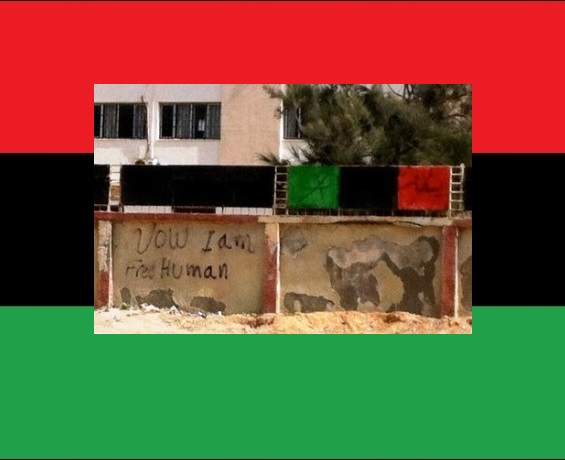Since mid-May 2014, Libya has witnessed a turbulent period of political volatility and an outburst of violence between armed groups, which is resulting in further polarisation of the political spectrum and a divisive political situation. Libya’s political evolution is multifaceted and remains trapped within a split and factional political framework that does not offer a vision or a path leading out of the transition. While the central authorities remain divided and contentious over the power sharing issue, Libyan society still has to heal the scars of the revolution, which are not only still very visible on the buildings and roadsides of the country, but clearly perceptible in the Libyan legislative and institutional system. The armed confrontation among different militias and the political divide that resulted from the decision of the previous parliamentary assembly (GNC) not to disband after the 25 June general elections led to a sharp deterioration of the human rights and humanitarian situation and to the worst outburst of violence since the fall of the Gaddafi regime.
Libya’s political future and long-term stability will be defined by how the post-Gaddafi and post-conflict transition will be managed by the international community and how the few seeds of transitional justice mechanisms already implanted in the Libyan legislative system will be supported and helped to grow. These elements play a critical role in developing a new covenant for Libyan citizens and will have serious ramifications for the development of political and societal institutions and their ability to protect and expand the civil and political rights of Libyans.
So far, the response to the current crisis by international organisations and Western countries has been haphazard and limited to declarations of principles and generic support to political dialogue among the Libyan political actors. Most recently, United Nations Secretary-General BAN Ki-moon visited Tripoli with the EU High Representative for Foreign Affairs and Security Policy designate, Federica Mogherini, and four special envoys from EU member States, stressing the need for dialogue. Tellingly, beyond a vague mention of addressing root causes once the fighting had stopped, the Secretary-General’s remarks in Tripoli were devoid of references to human rights, transitional justice or the need to end impunity.
At the same time, neighboring countries and regional powers are maneuvering and steering among Libyan militias to gain access, power and control. President Al-Sissi, the new strong-man in Cairo, is methodically putting together an informal coalition with UAE, Algeria and more recently Sudan to bring Libya under his influence with more concrete plans than the one offered by the West. Last week, in a joint declaration together with President Al-Bashir of Sudan, they promised assistance and materiel to the Libyan authorities to reinforce their (official) armed forces. In August, UAE warplanes allegedly bombed the Qatari-sponsored militias besieging Tripoli’s international airport with the logistical assistance of the Egyptian Air Forces.
It is urgent that the international community develop a concrete political strategy to support the legitimate aspiration of the Libyan people for security, dignity and democracy. The values for which the Revolution that ousted Colonel Gaddafi in 2011 was fought need to be brought back into the political discourse and concretely and strongly supported. As countless other transitional societies have demonstrated, impunity and rewards for violence are too fragile a base upon which to build a stable democracy.
Rudiments of transitional justice mechanisms, such as Law no. 29/2013 on Transitional Justice and the 19 February 2014 Ministerial Decree on Legislation to Redress the Situation of Victims of Rape and Violence, are already present in the Libyan legislative system. These legislative instruments, elaborated by the former legislative and executive bodies, need now to be implemented and become the centerpiece of the necessary political dialogue between Libyan political forces. The United Nations in general, and UNSMIL in particular, and Western countries should identify these transitional justice mechanisms as the cornerstone of their political strategy and raise them accordingly in public and private settings.
Focusing on the implementation of current transitional justice laws will provide Libyan civil society actors and political forces with achievable and concrete goals and build-up those mechanisms of reconciliation and pacific resolution of conflicts that can represent key elements for developing broader and inclusive political discussions on the respect of human rights, democracy and the rule of law. Ensuring that transitional justice mechanisms are at the center of the national dialogue is one of the main tools to build up those critical State institutions, such as the justice system, that can guarantee equality in front of the law, accountability and personal responsibility for all citizens. These are fundamental elements without which a democratic, peaceful and stable regime cannot be established or sustained.
Ensuring that the political discourse focus its attention on developing shared, open and fair transitional justice mechanisms can remove attention from current tendencies to look outside the country for political backing and support. It can therefore also help reduce the risk of external actors fuelling cycles of violence and “counter-retribution”. Focusing on transitional justice can help weaken the negotiating position of those who are seeking and retaining power through the commission of violations. The benefits of a focus on transitional justice are many; the drawbacks of failing to do so could be catastrophic.
Libya is at a critical juncture of its history and Europe – alongside the rest of the international community – should move with resolve to ensure that the compass by which Libyan political actors will define the future of the country is set on transitional justice mechanisms to achieve stability, accountability, democracy and the rule of law and not on geopolitical interests set by Egypt and Sudan.
* Gianluca Eramo is MENA Program Coordinator of No Peace Without Justice (geramo@npwj.org)
- Read the article as published in the Libya Herald on 30 October 2014
NPWJ in Libya
NPWJ has been working on the Libyan transition since early 2011, in the framework of its project to support Libya’s democratic transition through justice and accountability. As the country embarks on legislative reforms, the Libyan authorities can break with the legacy of impunity and abuses that typified Gaddafi’s rule with a new respect for the rule of law and a commitment to restoring justice and dignity to victims. Doing so requires not only the investigation and prosecution of the crimes and violence perpetrated during the revolution, but also efforts to confront a history of oppression and human rights abuses that dates back decades under the rule of the former regime.
For further information on the activities of NPWJ in Libya please contact Giulia Cappellazzi, at gcappellazzi@npwj.org or +218911476934.



